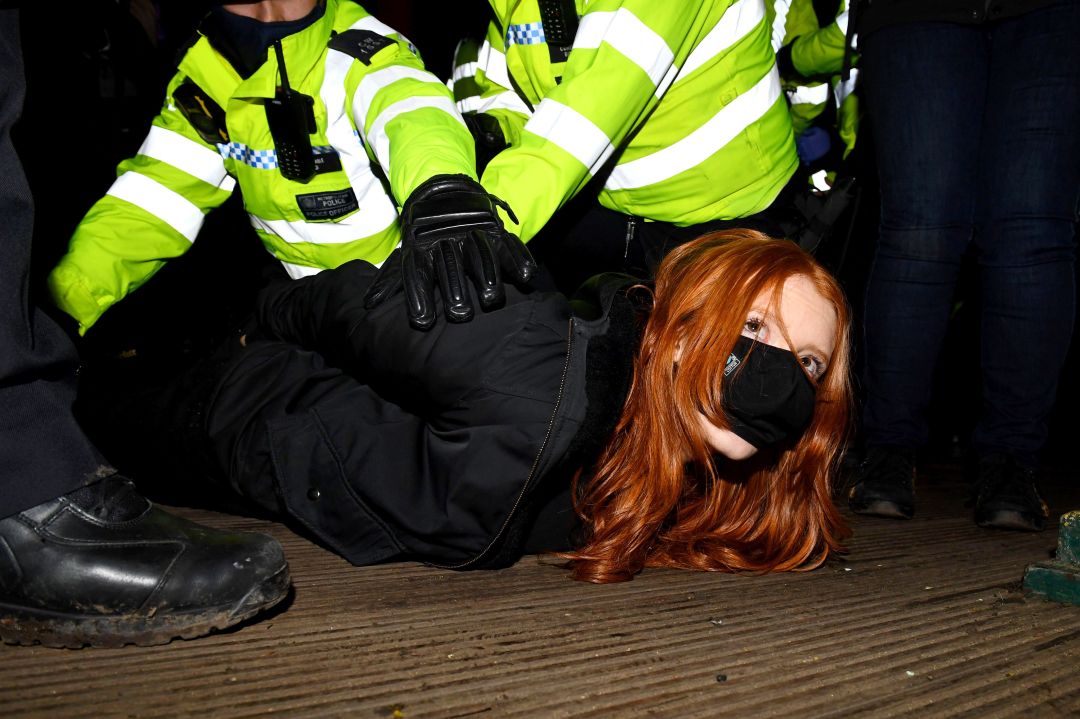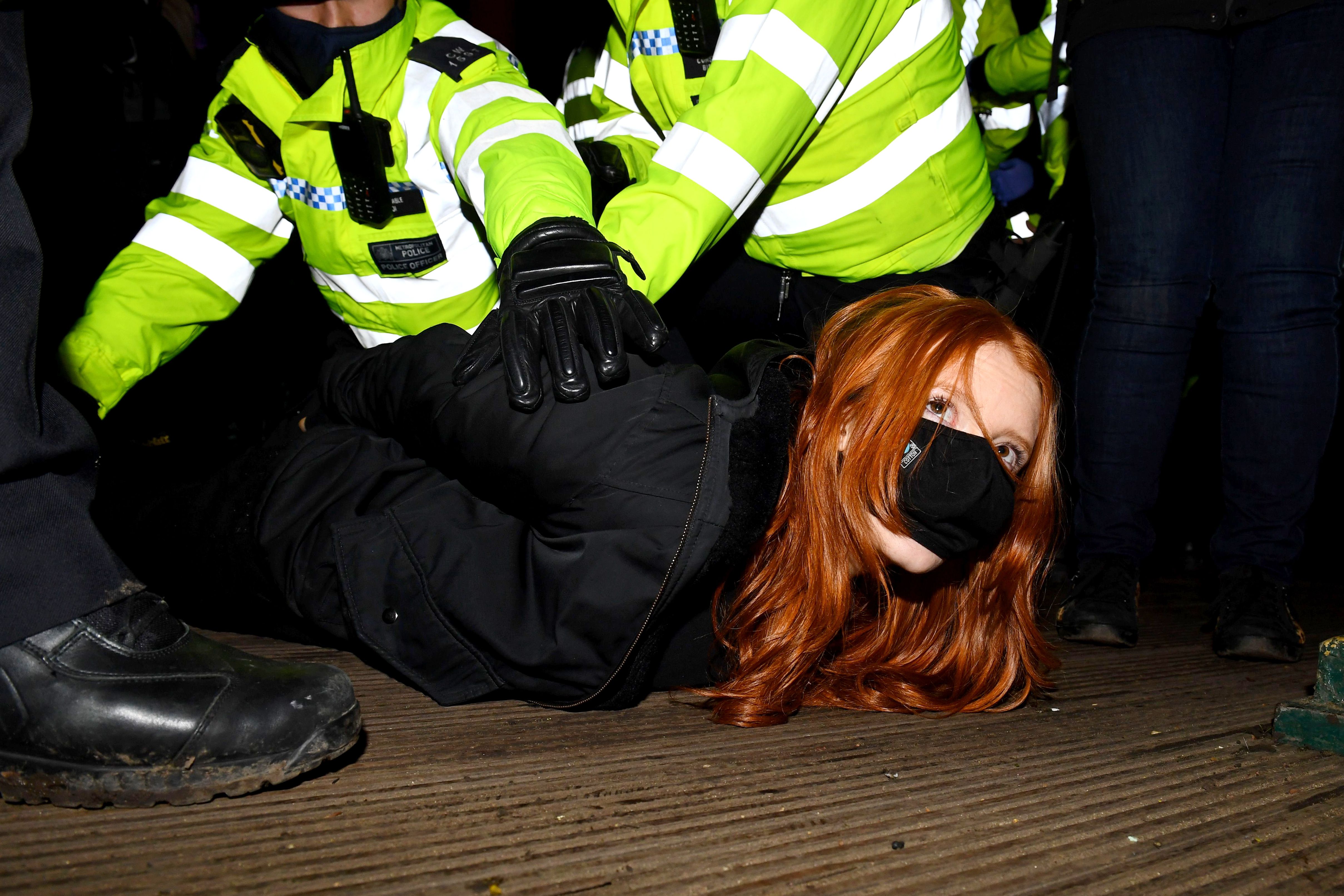The scenes in Clapham Common have brutally exposed the problem with lockdown rules. People had gathered to mourn Sarah Everard and protest in defence of the right to walk the streets safely. The Metropolitan Police had been asked by the government to stop people going outside for anything other than a handful of allowed reasons: protest is not one of them. Given how many anti-lockdown protesters were arrested at Clapham Common earlier this year, the Met decided it could not be seen to pick and choose causes. Protesters were told it was ‘unsafe’ for them to be there due to Covid-19. Officers swooped. Chaos ensured.
Footage from the protests showed a row of women being dragged away from the bandstand on the common, which has been filled with flowers for Ms Everard. One sign read: “We aren’t safe in our homes, how can we reclaim the streets?” Members of the crowd could be heard shouting ‘shame on you’ and ‘you are scum’ at the police after the clash while one woman screamed ‘you’re supposed to protect us’. At a time when the state has been handed so much power, it must be used lightly and proportionately. The Met’s actions in Clapham clearly fail that test.
It was “a really invidious position for my officers to find themselves in” said Cressida Dick, the Met Commissioner, afterwards, coming as she dared to pointing out fundamental problem. Police have been asked to enforce a policy that is no longer morally defensible: the criminalisation of peaceful protest. When the virus was surging, it was reasonable to suspend many fundamental rights – including freedom of assembly. The freedom to visit one’s neighbours, go to work, enjoy the company of friends and family. But it is harder to make the case for this removal of these basic civil liberties when virus levels are, by some estimates, lower than at any point in the summer.
At a time when the state has been handed so much power, it must be used lightly and proportionately
Hospital admissions have fallen 80 per cent from the second wave’s peak.








Comments
Join the debate for just £1 a month
Be part of the conversation with other Spectator readers by getting your first three months for £3.
UNLOCK ACCESS Just £1 a monthAlready a subscriber? Log in